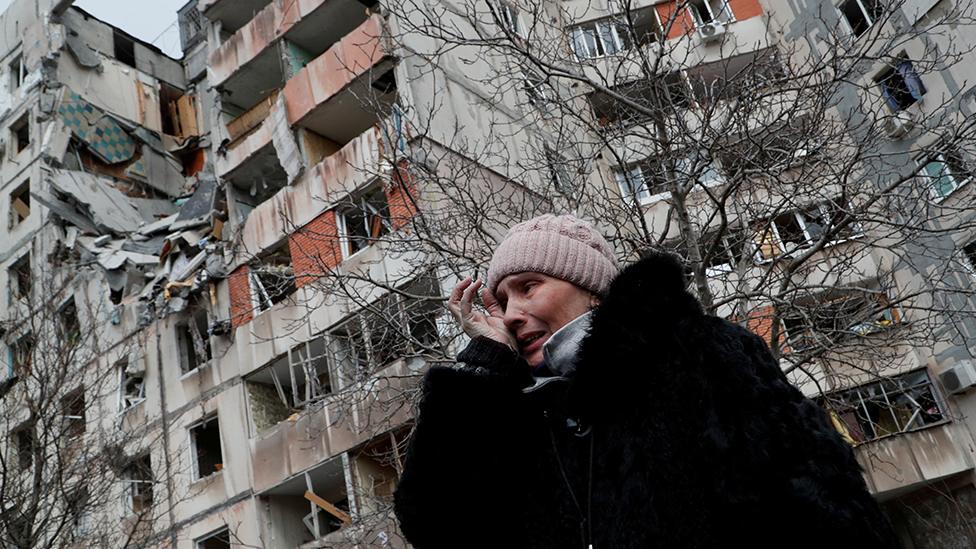Ukraine war: Mariupol's refugees carry wounds of battered city
- Published
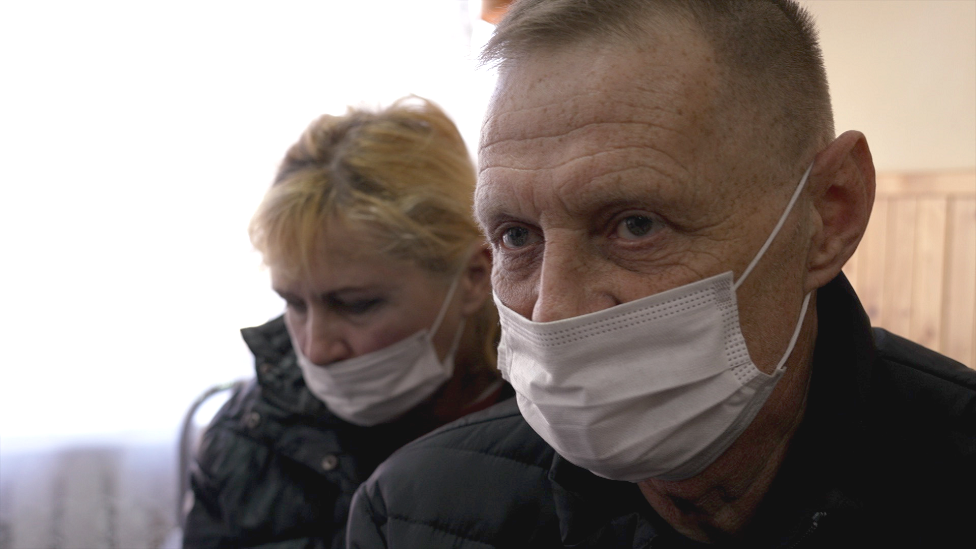
Mariupol residents Yevgen and Natalia have made it to Lviv in western Ukraine
There is no humanitarian corridor now out of Mariupol. Just a trickle of people gambling on Russian military checkpoints - and Russian political whim.
But getting out of the besieged southern city is only the first challenge; the other is leaving it behind when you do.
Alexander was brought to an Israeli field hospital near Lviv last week, catatonic. His 24-year-old brain was stuck on the horror he'd lived through: on the Russian rockets that hit the apartment block where he was staying with his parents; on the rubble and dead bodies they ran through, without even putting on their shoes.
"It was constant bombing," says his father, Yevgen. "Planes went past every 10 minutes and dropped bombs on Mariupol. People were falling and dying in front of my eyes. We buried people in gardens."
The family found shelter with hundreds of others in a cinema near the city centre. Trapped there by Russian attacks, they survived on scraps of food from locals or Ukrainian soldiers, boiling snow to drink.
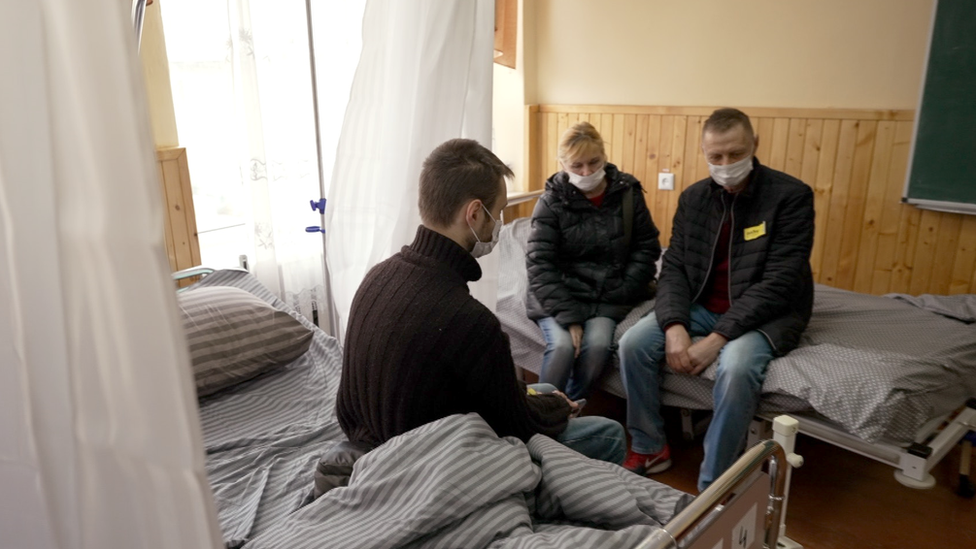
The family are staying with friends outside Lviv after fleeing Mariupol
When supplies ran critically low, Natalia says, everyone without young children was asked to leave - to save resources and give the children a chance.
"We had a car that was damaged, but still working," she said, "so we decided to leave the shelter. There was no way out: you could stay and die, or you could go and die. You couldn't even count minutes between the bombs."
Memories like these mask their old lives like a second skin. The destruction and damage to Mariupol is carried out of the city with them; invisible shrapnel, lodged in their minds.
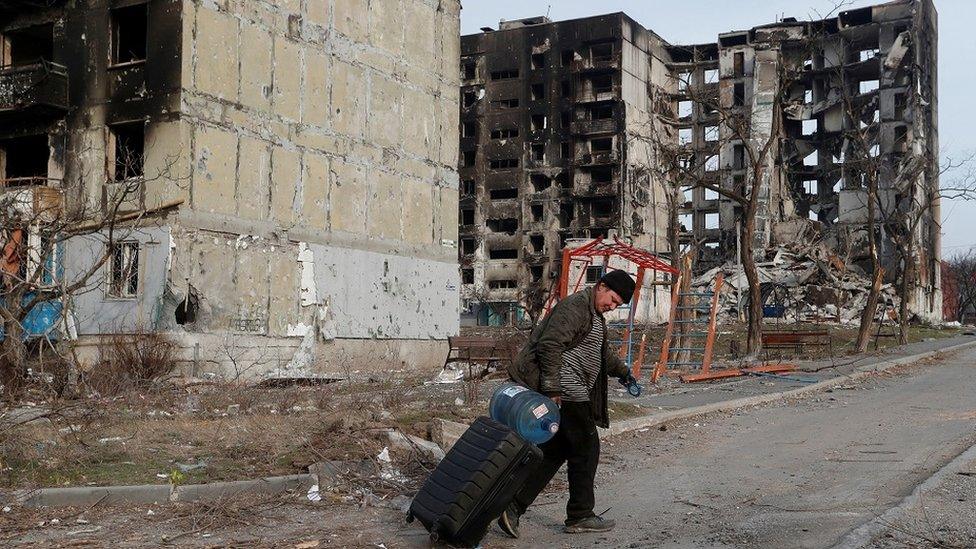
Some 160,000 people are still thought to be trapped in Mariupol
Mariupol's mayor says 5,000 people have been killed, and 90% of the buildings damaged.
Some of their pro-Russian neighbours, Natalia says, believed it was Ukrainian forces pounding their city to dust.
She refers to the Russian soldiers sarcastically as "our saviours" or "those charming boys", describing the pressure tactics she saw them use.
"After the shelling, those 'handsome boys' would appear and try to hand out sweets," she said. "Some people couldn't resist taking them, because they hadn't eaten for several days. When you're suffering like that, you'll take anything."
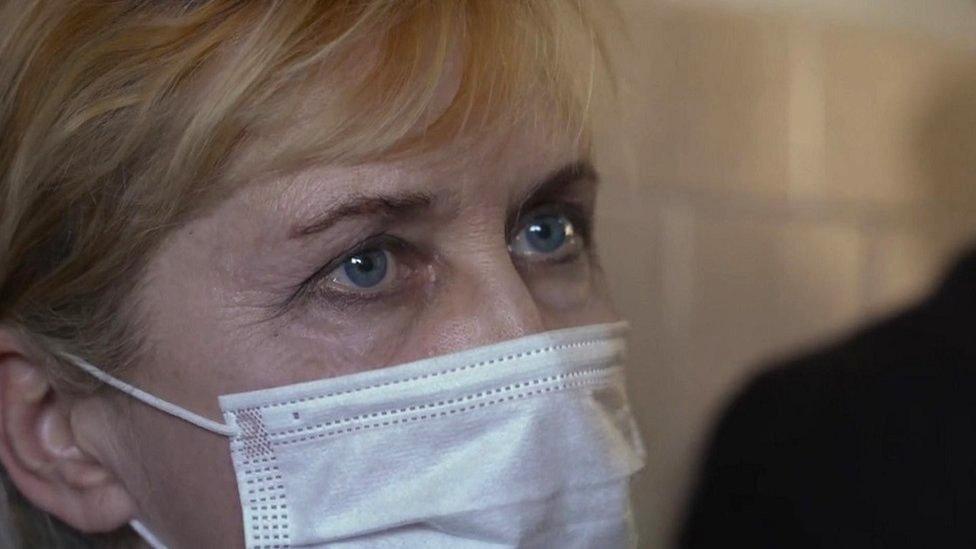
Natalia says they were told to flee when resources ran low
Some 160,000 people are thought to still be trapped inside the city. France, Greece and Turkey have all tried to push for a pause in the attacks to get aid in and allow civilians to leave. But Russia's President Putin has said Mariupol must surrender in order for the bombardment to stop.
Alexander and his family are now staying with friends outside Lviv. And Alexander has just been discharged and allowed to go "home".
His father Yevgen is a musician, with one remaining saxophone he salvaged from the city before he left. Before taking his son home from hospital, he gave staff at the hospital a concert, Alexander smiling on beside him.
Gathered between the medical tents to listen, half the doctors were in tears.
They listened to the beautiful sound from the man who had lost so much, but who stood there, giving thanks for what he saved from Mariupol: his saxophone, and his son.

Are you or your family in Ukraine and have been affected by the war in Ukraine? Please share your experiences by emailing haveyoursay@bbc.co.uk, external.
Please include a contact number if you are willing to speak to a BBC journalist. You can also get in touch in the following ways:
WhatsApp: +44 7756 165803
Tweet: @BBC_HaveYourSay, external
Please read our terms & conditions and privacy policy
If you are reading this page and can't see the form you will need to visit the mobile version of the BBC website to submit your question or comment or you can email us at HaveYourSay@bbc.co.uk, external. Please include your name, age and location with any submission.

War in Ukraine: More coverage
SHOOTING: Does video show Ukrainian war crime?
READ MORE: Full coverage of the crisis, external

- Published31 March 2022
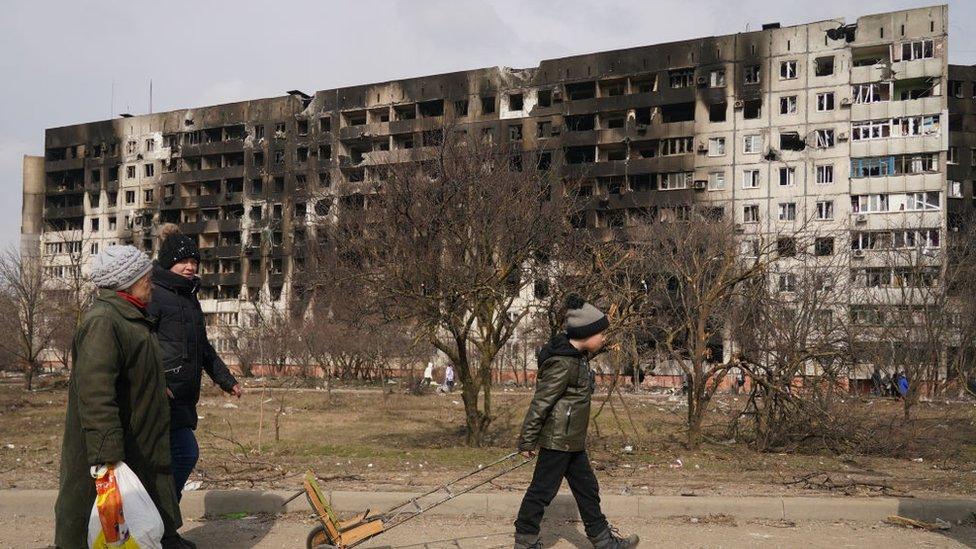
- Published21 March 2022
